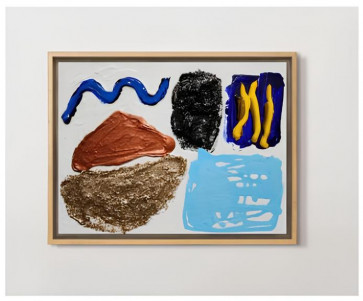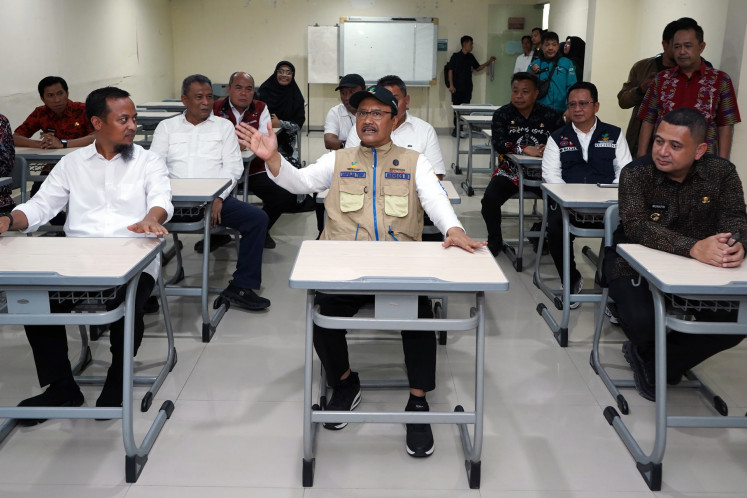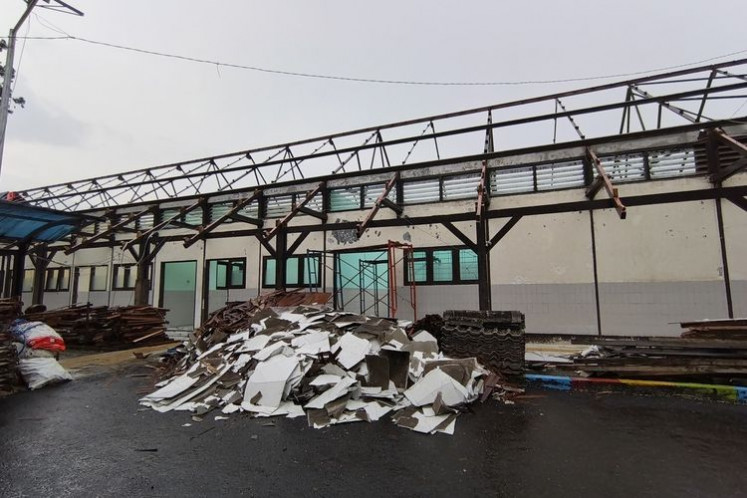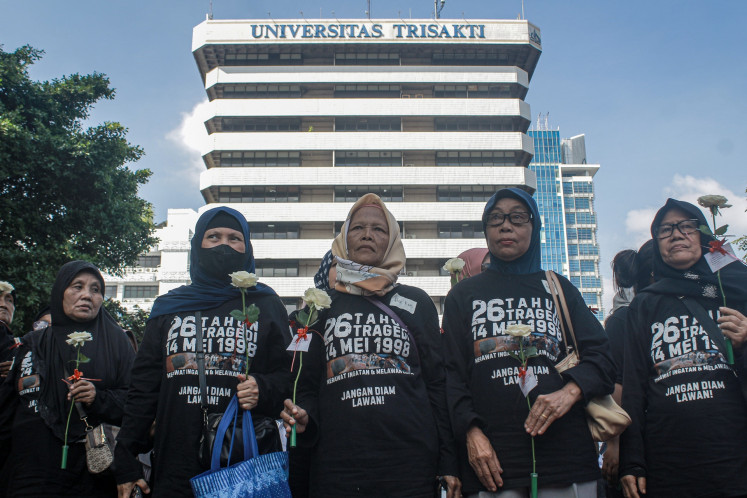Jakartans think tap water too unhealthy to consume: Study
A study by the Indonesian Consumers Foundation (YLKI) suggests that many Jakartans are reluctant to use tap water for drinking and cooking because they are not sure if it is safe and healthy to do so
Change text size
Gift Premium Articles
to Anyone

A
study by the Indonesian Consumers Foundation (YLKI) suggests that many Jakartans are reluctant to use tap water for drinking and cooking because they are not sure if it is safe and healthy to do so.
According to the study, most consumers use running water only for other purposes, such as bathing and washing, while relying on other sources of water for drinking and cooking.
The study, which is based on a survey of 21 respondents from Jakarta’s five municipalities and one regency, revealed that most respondents used bottled water for daily consumption.
“Only 14.59 percent [of respondents] use tap water for drinking and 23.40 percent for cooking,” YLKI researcher Eva Rosita told a press conference on Tuesday.
She added that 13.64 percent of respondents said they used groundwater for drinking and cooking while 9 percent said they relied on mobile water vendors, even though they had clean water supplies provided by private operators PT PAM Lyonaisse Jaya (Palyja) and PT Aetra Air Jakarta (Aetra) in their houses.
Eva said many of the respondents were wary of consuming tap water because they believed the quality of the water was poor.
She said 61.90 percent of respondents said that the tap water running in their houses was either smelly, tinted or flavored.
The YLKI also conducted a laboratory examination to asses the levels of lead and mercury contained in the tap water.
The result showed that the levels of lead and mercury were below the maximum limits of 0.01 milligram per liter and 0.001 gram per liter set by the Health Ministry.
“But we are still unable to conclude if the tap water is safe to consume as there are many other factors that need to be examined to determine if the water is safe to consume or not,” Eva said.
Erlan Hidayat, the president director of city-owned water operator PD PAM Jaya, which supervises both Palyja and Aetra, said his company never compromised on water quality.
“We have our own laboratories that examine water quality in 600 spots everyday,” he said.
He added that if problems were found, PAM Jaya would immediately reprimand the operators and urge them to fix the issues as quickly as possible.
“I am doubtful about YLKI’s research but we are open to cooperation should they be willing to share their data with us,” he said.
The president director claims tap water in Jakarta is safe to drink as long as it is boiled first. “The water coming out of our water treatment plants is actually potable. However, some of our pipes are rusty as they are 70 years old,” he said.
Erlan added that people might choose bottled water due to reasons of practicality and not necessarily because of the poor quality of tap water.
When it comes to murky and smelly water, however, Erlan blamed infrastructure projects that often broke water pipes.
“I believe this has become a factor that has affected our customer’s level of confidence,” he said.









